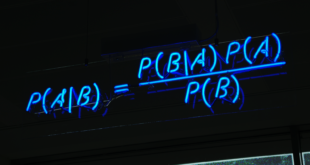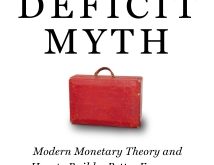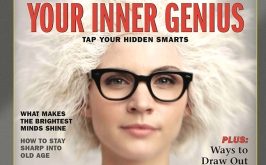.[embedded content]
Read More »Aluhüten, Verschwörungstheorien und Coronaskepsis
Aluhüten, Verschwörungstheorien und Coronaskepsis .[embedded content]
Read More »Bayes and the ‘old evidence’ problem
Bayes and the ‘old evidence’ problem Among the many achievements of Newton’s theory of gravitation was its prediction of the tides and their relation to the lunar orbit. Presumably the success of this prediction confirmed Newton’s theory, or in Bayesian terms, the observable facts about the tides e raised the probability of Newton’s theory h. But the Bayesian it turns out can make no such claim. Because the facts about the tides were already known when...
Read More »Does MMT have an inflationary bias?
Does MMT have an inflationary bias? A view yours truly often encounters when debating MMT is that there is an inflationary bias in MMT and that its framework ignores expectations. It is extremely difficult to recognize that description. Given its roots in the writings of Keynes, Lerner, and Minsky, it is — to say the least — rather amazing to attribute that view to MMT. Let me just quote one source to show how ill-founded the critique is on this issue: MMT...
Read More »Grow up and get vaccinated!
Grow up and get vaccinated!
Read More »P-values vs. Bayes factors (student stuff)
P-values vs. Bayes factors (student stuff) .[embedded content]
Read More »The power and poison of MMT
The power and poison of MMT MMT includes both problematic propositions and perfectly reasonable — even highly useful — positions. In the latter category, the idea that stands out is essentially functional finance theory. Proposed by Abba Lerner in 1943, FFT holds that, because governments borrowing in their own currency can always print money to service their debts, but still face inflation risks, they should aim to balance supply and demand at full...
Read More »Political correctness? No thanks!
Political correctness? No thanks! .[embedded content]
Read More »Why use JASP?
.[embedded content]
Read More »Intelligence
Several years later I developed a broader theory of what separates the two general classes of learners—helpless versus mastery-oriented. I realized that these different types of students not only explain their failures differently, but they also hold different “theories” of intelligence. The helpless ones believe that intelligence is a fixed trait: you have only a certain amount, and that’s that. I call this a “fixed mind-set.” Mistakes crack their self-confidence because they...
Read More » Lars P. Syll
Lars P. Syll




